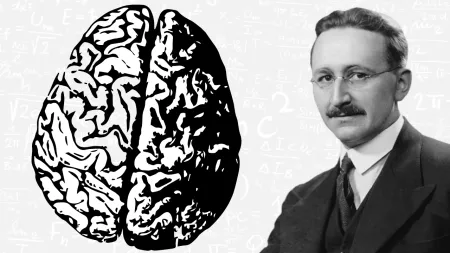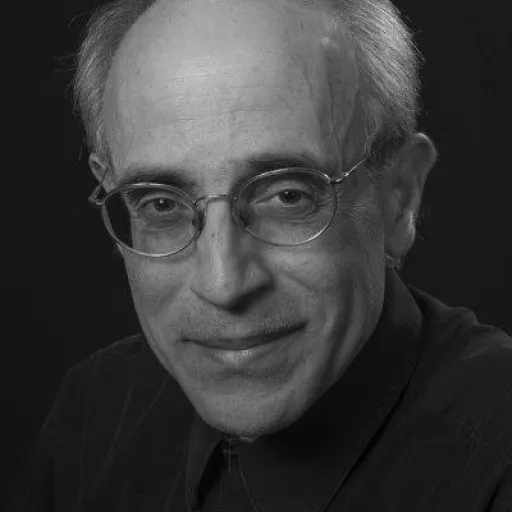The Division of Knowledge
From "Design Discourse"

If traditional humanism is to survive, it must come to terms with thinking and communicating within a high-tech, commercial society. Over a decade ago, Gerald Graff in Beyond the Culture Wars (1992) advocated “teaching the conflicts” as a way to “revitalize” higher education, but when it comes to the new corporate university, most humanists still indulge in “apocalyptic posturing." We denounce the military-industrial-academic complex while conducting online research and applying for institutional grants. By denying our paid function within a post-capitalist economy, we alienate our students, who attend college primarily to become knowledge workers, and ignore a watershed cultural development: the changing nature and role of disciplinary and professional knowledge in our time.
As Nobel economist Friedrich Hayek noted seventy years ago, the division of labor, which made possible the Industrial Revolution, has become a more subtle “division of knowledge,” which now characterizes and sustains modern business, political, and academic institutions. Borrowing a term from Adam Smith, Hayek called our knowledge-based civilization the Great Society: social arrangement based on widespread and decentralized economic interdependence, abstract legal codes, and impersonal information rather than local and concentrated family ties, concrete tribal customs, and personal dialogue. The division of knowledge, therefore, carries profound political, ethical, and rhetorical significance. As Hayek declares in “The Use of Knowledge in Society:” “We make constant use of formulas, symbols, and rules whose meaning we do not understand and through the use of which we avail ourselves of the assistance of knowledge which individually we do not possess." Since no one possesses total knowledge, Hayek concludes, different disciplines and professions of knowledge must learn to understand and dialogue with each other.
KNOWLEDGE REVOLUTIONS
In Post-Capitalist Society (1994), Peter Drucker shows how Hayek’s theory affects both business and the academy. Underlying all three phases in the global shift to a knowledge economy—the Industrial Revolution, the Productivity Revolution, the Managerial Revolution—has been a fundamental shift in the meaning of knowledge itself: “We have moved from knowledge in the singular to knowledges in the plural,” Drucker explains. “Traditional knowledge was holistic and general; contemporary knowledge, in contrast, is partitioned and highly specialized, focused on practice and concerned with results. “This is as great a change in intellectual history as ever recorded,” Drucker declares. While the traditional university demoted specialized knowledges to the level of “crafts,” the modern university elevates them to “disciplines” and “professions." Such privileging is fitting, Drucker argues, for without this necessary specialization of disciplines and professionals, mass society and the global economy would collapse, and billions would perish.
The shift from knowledge to knowledges has given knowledge the power to create a new society. But this society has to be structured on the basis of knowledge as something specialized, and of knowledge people as specialists. This is what gives them their power. But it also raises basic questions—of values, of vision, of beliefs, of all the things that hold society together and give meaning to our lives. . . . [I]t also raises a a big—and new—question: what constitutes the educated person in the society of knowledges?
According to PTW scholar Bernadette Longo, this question originates with Sir Francis Bacon, who “coined” the concept of a practice-oriented academy and “minted” the discipline of professional and technical rhetoric. Surveying the progress made in the early 17th century, he compared the New Learning to a galleon returning through the Straits of Gibraltar, loaded with the bounty of invention and enterprise from foreign ports. Unfortunately, Bacon complained, such cargo was warehoused on a rotting pier. Rather than circulate knowledge, the academy of Bacon’s day hoarded it in dry dock. Bastions of power and privilege, Oxford and Cambridge had built moats to contain new currents of thought and had become fortified worlds unto themselves. Rather than face and ponder the implications of new markets and technologies, England’s best universities idolized the past, disdained the present, and feared the future. Traditional scholars and rhetoricians were obsessed with words, not things, while skeptical philosophers and jaded historians promulgated “the doctrine of Acatalepsy,” the radical belief that all human knowledge ultimately is impossible. In the name of Humanism, Bacon accused, both practices betrayed humanity by traducing reason. “The first subdues the understanding,” he observed, “the second unnerves it."
For PTW programs, this stalemate depressingly resembles the vicious culture wars within the current humanities between traditionalists and theorists, which have done so much to discredit the liberal arts in the eyes of students and the public. Echoing C.P. Snow, John Brockman, author of The Third Culture: Beyond the Scientific Revolution (1996), harshly criticizes this state of affairs:
THE THIRD CULTURE
American intellectuals are, in a sense, increasingly reactionary, and quite often proudly (and perversely) ignorant of many of the truly significant intellectual accomplishments of our time. Their culture, which dismisses science and industry, is often non-empirical. It uses its own jargon and washes its own laundry. It is chiefly characterized by comment on comments, the swelling spiral of commentary eventually reaching the point where the real world gets lost.
In contrast, the Third Culture, Brockman’s term for the scientific and technical culture of the professional knowledge society, can tolerate disagreements about which ideas to take seriously precisely because its diverse specialization recognizes no canon or accredited list of acceptable ideas. More to the point, it reaches beyond the academy. Since its members communicate effectively not only to each other but to legislators, business leaders, the media, and the public, its ideas have greater currency. Unlike past intellectual pursuits, therefore, the Third Culture’s achievements “are not the marginal disputes of a quarrelsome mandarin class: they will affect the lives of everybody on the planet.”
Bacon’s warning in The Great Instauration (1620), therefore, remains relevant. Puffed by the winds of pride and rocked by the storms of controversy, the traditional liberal arts veer close to shipwreck. To chart a better course, disciplines must abandon dead reckoning and rely on compass and quadrant, if only to draw more accurate maps and to train more expert navigators. Likewise, the humanities should emphasize the practical application of knowledge, should confront science and economics and integrate technology within their curricula, and should dedicate themselves, at least partially, to professional training and institutional administration. This program does not mean uncritical acceptance of the corporate status quo but critical scrutiny of the production of knowledge in a global commercial society. Indeed, as Adam Smith predicted in The Wealth of the Nations (1776), the professions themselves have become both the means and ends of profound intellectual inquiry:
"In a civilized state . . . there is an almost infinite variety of occupations within the whole society. These varied occupations present an almost infinite variety of objects to the contemplation of those few, who, being attached to no particular occupation themselves, have leisure and inclination to examine the occupations of other people. The contemplation of so great a variety of [professions] necessarily exercises their minds in endless comparisons and combinations, and renders their understandings, in an extraordinary degree, both acute and comprehensive."
